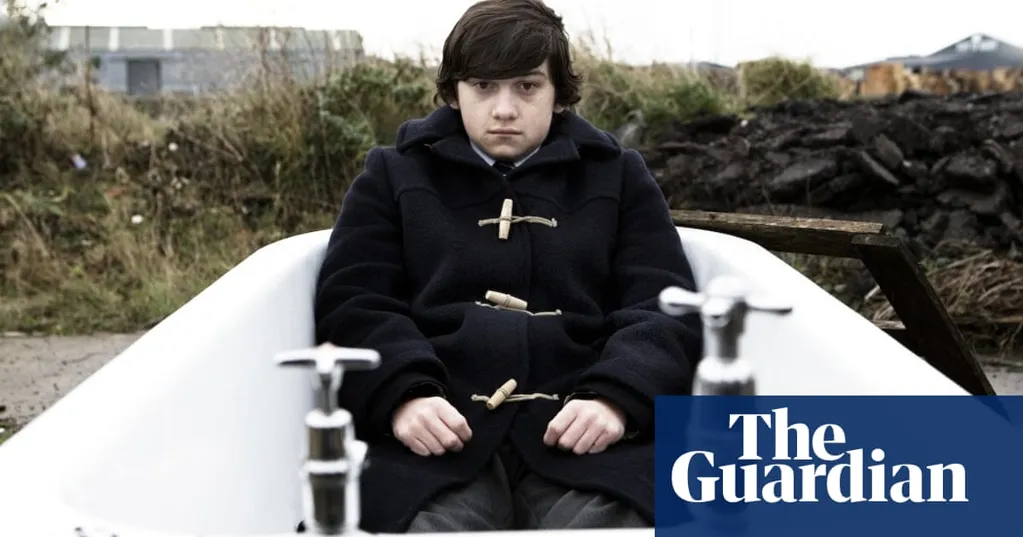The latest in our series of writers calling attention to their go-to comfort watches is a recommendation of a meaningful 2010 comedy drama.
I remember the day anxiety took over my life. I was 12 years old and felt continually, grindingly nervous about everything and nothing. I had spent the morning in the student support office, coming down from a panic attack that had left me pinned to a classroom floor, heart pounding and tears streaming down my face. Over a post-recovery cup of tea and Jaffa Cakes, a pastoral adviser told me that if this was to become a regular occurrence, I would hit burnout by the end of term. The idea stuck.
Within my first few weeks at high school, I was diagnosed with generalised anxiety disorder - a condition characterised by excessive and persistent worry, according to the NHS. A perfectionist streak had spiralled into an acute sense of responsibility. I was an overly conscientious student; I felt I had to be better than everyone else and excel at my studies in order to prove my worth. I tried to do as much work as I could, as perfectly as possible, as a way to shore up low self-esteem.
It was during this state of unrest that Richard Ayoade's Submarine waltzed into my world. It might be a curious choice to name a film that traverses a troubled home life, too-much-too-young sexual experiences, and bullying as my "feelgood" movie, but within its equally dark and peppy 97 minutes is a story about writing your own rules.
Adapted from the Joe Dunthorne novel, Submarine is touching, sweet and, crucially, very funny. Like its deep-thinking protagonist Oliver Tate, I was not very good at being a teenager. I worried I'd ruined my life when it had barely begun. The film follows Oliver's romance with classmate Jordana Bevan, a pyromaniac with a fearless sense of rebellion. He enjoys reading the dictionary; she likes to singe her partner's leg hairs with a lighted match.
Cooped up at home for days at a time, often too anxious to attend school, I first came across Submarine via Tumblr. I would spend hours in bed scrolling through the blogging website, which was awash with gifs of Oliver and Jordana. Their relationship, a true balancing of yin and yang energies, felt aspirational to young fans whose identities were still taking shape.
Early on in the film, Oliver becomes overwhelmed by a foreboding sense that he will not achieve anything in life. He indulges in gallows humour, narrating the visualisation of his own funeral - a candlelit vigil that will be filmed by a local news crew. While his misfit character sometimes leans into cliche (he reads Catcher in the Rye, of course) the film's expressive portrayal of anxiety felt validating. It illuminated many tensions that I instantly recognised, such as how mental illness can isolate an individual, leaving friends unsure how to help.
The way Oliver responds to situations can be extreme, but not illogical. A first kiss results in breathlessness. He hides in corridors, peeping at things he doesn't yet understand - gaining vignettes of grownup existence. Stepping outside of his bedroom is to trigger a mysterious, almost occult change in his confidence.
At 15, my life was a swirl of counselling sessions, insomnia, and weight loss. I was forced to drop half of my GCSEs, of which the remaining few were completed under separate invigilation. I was terrified, and beneath the fear, burning with shame. But as the months spooled on, I kept returning to Submarine whenever I needed to be reminded that there was a whole realm of possibility out there not reflected in the day-to-day that I knew.
As Oliver offers at one point, what happens during one's adolescence becomes imprinted in the memory and we can spend years later "revisiting the same handful of images". I vowed to take another route. It was Alex Turner's heart-rending soundtrack that instead offered me a way forward, with songs that speak to maintaining a sense of selfhood in difficult circumstances.
"Tomorrow, I'll be stronger/Running colourful, no longer just in black and white," he sings on Hiding Tonight. That's when it clicked: resentment could turn into resolve. A calmer, more emotionally stable future didn't have to feel impenetrable. Dozens upon dozens of viewings have since followed; the film still brings me hope and unfettered joy as an adult.
A few years into my career, I interviewed Turner at an east London pub. I was 21, still taking gentle steps towards getting better while making a living out of a love of music that essentially started with him. On the tube home, beaming and overjoyed, I pressed play on the Submarine soundtrack. In it I heard not nostalgia but the sound of my transformation, from a timorous, unwell girl to the journalist I became, to what I am still becoming now.
